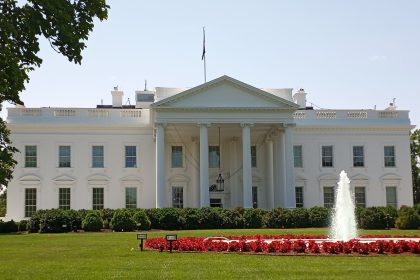New Bill in Congress Would Eliminate Employee Arbitration Requirements

WASHINGTON — Former Fox News television host Gretchen Carlson advocated during a congressional hearing Thursday against employment arbitration contracts that limit workers’ rights to sue their employers.
She said they often force employees into silence about misdeeds of their bosses, such as Carlson’s former supervisor who was accused of sexually harassing her.
“Companies don’t want anyone to know about their dirty laundry,” Carlson said. “You get fired and the perpetrator gets to stay on the job and the woman never works again.”
Carlson testified before the House Judiciary subcommittee on antitrust, commercial and administrative law on the same day a bill was reintroduced in Congress to end a requirement of arbitration in employment contracts.
Called the Forced Arbitration Injustice Repeal Act, or FAIR Act, it would prohibit pre-dispute arbitration agreements from being enforceable if they require arbitration of an employment, consumer or civil rights claim against a corporation. Arbitration clauses prohibit employees from taking cases to court, which has led to allegations they inhibit rights of workers to hold employers accountable for discrimination, sexual harassment or wage theft.
Carlson’s well-known case resulted from her 2016 lawsuit against then Fox News Chairman Roger Ailes claiming sexual harassment. Afterward, dozens of other women stepped forward to accuse Ailes of harassment.
Carlson tried to sue Ailes and Fox News but initially was blocked by an arbitration clause in her employment contract.
She told the congressional subcommittee that when she understood the legal barrier created by the arbitration clause, it “was one of the darkest days of my life.”
Afterward, “My lawyers told me, ‘You don’t have a case anymore,’” she said.
Further legal maneuvers finally allowed her to override the arbitration clause to present her case in court. The lawsuit led to Ailes’ forced resignation, a $20 million settlement with Fox News and Carlson receiving a public apology.
It also was one of the first high publicity cases that prompted the #MeToo movement against sexual harassment.
“I truly believe that this legislation will change the landscape of the American workplace,” Carlson said about the FAIR Act.
The bill was reintroduced in the House by Rep. Henry C. Johnson, D-Ga., who also chaired the subcommittee hearing. Two previous attempts to pass the legislation never won Senate approval.
“In forced arbitration, the deck is stacked against the little guy and most often the corporations come out on top,” Johnson said.
He added that only about 3% of employees win their cases in arbitration, partly because the arbitrators are commonly hired by the corporate employers. At the same time, about 60% of the American workforce is bound by arbitration agreements because they have no other options for obtaining employment.
He called arbitration requirements a violation of the plaintiffs’ Seventh Amendment right to a jury trial.
Republicans on the subcommittee said eliminating arbitration requirements would create worse alternatives for employees and their employers. They could be forced into lawsuits that would be more expensive and take much longer.
Rep. Mike Johnson, R-La., said the speed and lower costs of arbitration meant, “It’s advantageous to litigants on all sides.”
If there are problems with arbitration clauses, “We can reform those things,” he said.
He was joined in arguing in favor of arbitration clauses by G. Roger King, an attorney representing the HR Policy Association, an organization that promotes policies to benefit corporate human resource officers.
“The solution is not to push everybody into the courts,” King said.
He described the courts as already “overrun” with cases. In addition, with arbitration, the plaintiffs play a bigger role in their cases.
“By and large, it’s a system they can participate in,” King said. “They don’t need a lawyer.”
One of the best-known disputes over arbitration clauses was the November 2018 walkout by more than 20,000 employees of technology giant Google.
They were protesting what they described as Google’s policies on “equity and transparency in the workplace,” which included disagreement over its forced arbitration clause in employee contracts.
In February 2019, Google announced it was ending forced arbitration for full-time employees.
























